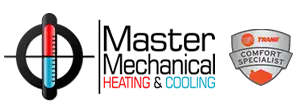Mold Exposure Symptoms: What You Need to Do
Exposure to mold in homes is a common and potentially dangerous problem, but thankfully one that can be easily remedied. Mold grows in damp environments, so it's often found in old houses or in basements and attics. Inhaling airborne mold spores can cause symptoms even in healthy individuals, and can aggravate pre-existing upper respiratory problems such as allergies and asthma.
Mold Exposure Symptoms
Often, the first sign that you may have a mold problem is physical symptoms. These physical symptoms can include:
- Sneezing
- Coughing
- Wheezing
- Itchy eyes and throat
- Headaches
- Nosebleeds
- Fatigue
Long-term exposure to mold can have more serious consequences, such as:
- Anxiety
- Difficulty concentrating
- Memory loss
- Sensitivity to light
These symptoms are usually more severe in children, the elderly, and individuals with asthma, seasonal allergies, or allergies to mold. If residents of the house experience these symptoms persistently, especially while at home, you may want to consider hiring an HVAC professional to see if your home contains mold.
Removing Harmful Molds
If the HVAC professional finds mold in the home, they will recommend a course of action to rid the house of any toxins. This can mean thoroughly scrubbing the mold from any contaminated surfaces with bleach or another strong chemical, cleaning the air ducts and vents, and replacing contaminated, difficult to clean items like mattresses, couches, or clothing. It may also be helpful to repaint the walls using paint that includes mold inhibitors after the surface has been scrubbed completely clean from the mold.
Mold Prevention
Since mold thrives in damp environments, even a thorough cleaning is usually not enough to prevent it from returning. You may want to install a dehumidifier in the basement to control the level of moisture in the house. You can also clean the bathroom, basement, or other areas of the house that tend to get damp with mold-killing cleaning products. It is also important to properly clean and maintain your HVAC system throughout the year to prevent mold growth. When mold grows in an HVAC system that blows air throughout the house, this can increase the level of the residents' exposure to mold spores.
Mold is found everywhere in nature, but when it's in your home it presents an unpleasant and potentially hazardous problem. However, it can easily be reversed and prevented with some careful planning and cleaning. Contact us for more information if you or a family member shows symptoms of mold exposure in your home, and we can help you find a solution.






